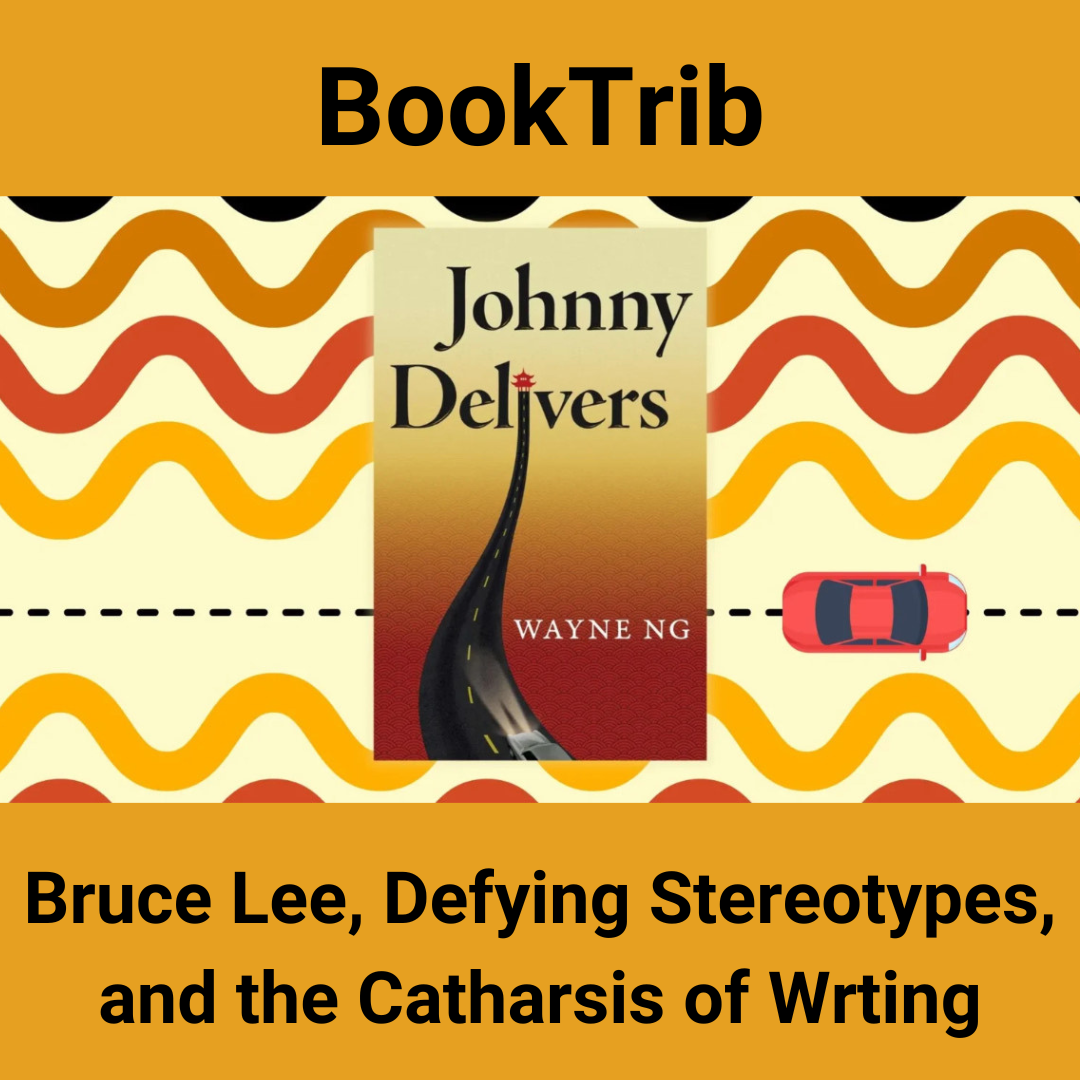Explore Wayne’s insightful feature in BookTrib, diving into the inspiration and courage behind writing JOHNNY DELIVERS.
Reproduced below from BookTrib.com – October 28, 2024
Bruce Lee, Defying Stereotypes, and the Catharsis of Writing by Wayne Ng for BookTrib
Most writers embark on projects with a clear sense of what they want to say, often revisiting familiar characters, themes and settings. When my publisher agreed to launch Johnny Delivers, a standalone sequel to the award-winning Letters From Johnny, they likely had no idea of the deeper struggles I had in constructing the story. But then again, writers are notorious for deceiving not just readers and their publishers but themselves.
Though I had the plot, setting and characters mapped out, the early drafts of Johnny Delivers were a struggle. I didn’t know what I truly wanted to say — I lacked emotional clarity and purpose. Worse, I was determined to avoid the overused Asian immigrant tropes of cultural conflict, duty, sacrifice, restaurant work and emotionally distant parents. Setting the novel in the 1970s meant revisiting an era when Asians were often reduced to demeaning caricatures — stereotyped, buck-toothed, humble figures. These depictions made me cringe, filling me with shame about my roots and identity.
Confronting Stereotypes with Satire
It wasn’t until I realized how necessary it was to confront the emotionally taxing experiences that I realized how important this story was for me to write. Memoirists (e.g., Lindsay Wong, Hollay Ghadery and Jen Sookfong Lee) often show remarkable courage by laying everything bare. From a craft perspective, I had to emotionally place myself within the story and feel the shame. Harvesting those emotional wounds yielded richer, more authentic writing. For me, it meant creating a new narrative that embraced some of the hard truths of the time.
Take the twining of Asians with restaurants — a worn-out convention if there ever was one. Yet, almost everyone I knew worked in hospitality. It would have been novel but unrealistic to situate my fictional Chinese family in, say, a yoga studio. Similarly, cultural and generational conflicts, though cliché, were and remain real wedges in families. And while uncomfortable to admit, Hong Kong gangs did infiltrate Canada in the ’70s and are still active today.
If I was going to write this story, I needed to confront how Canada’s institutionalized racism shaped my identity and that of earlier generations. But I wanted to do so with humour and satire — my way of navigating those painful truths.
Bruce Lee: Redefining Asian Masculinity
The ’70s were my high school years in Toronto, marked by familiar immigrant struggles, poverty, and the indignity of racial marginalization. But something seismic also happened then: Bruce Lee exploded onto the scene. His sudden rise redefined Asian masculinity, reshaping how the world viewed Asians. Bruce Lee didn’t just break the mold — he obliterated it, creating a new archetype of the strong, defiant and unapologetically heroic Asian man. He remains the most iconic East Asian figure globally, paving the way for others like Michelle Yeoh, Simu Liu and Sandra Oh.
Lee’s refusal to play the invisible, kowtowing caricature was revolutionary. Instead, he embodied a martial and philosophical artist — determined, fierce and uncompromising. It came at a cost (he died tragically young), and while many of us admired him, few could match his brand of hypermasculinity. In dispelling one Asian stereotype, Bruce arguably traded it for another. It was a net gain, but it didn’t fit seamlessly — and it still doesn’t. That’s why I wanted to pay homage to Bruce’s legacy while also humanizing him.
A Cathartic Writing Experience
Johnny Delivers blends humour, tenderness and nostalgia. It embraces, then subverts, the conventions I dreaded, offering a deeper portrayal of Chinese families. It skewers white saviourism and challenges the Asian idolization of the West. The novel captures the fear and excitement of moving forward and untangles the mixed messages I wrestled with as a teen and adult.
Along the way, I also explored little-known chapters of Canadian-Chinese history, including the Chinese Exclusion Act. Because of such measures and the history of exclusion, many Chinese could only enter the country through forged documents, leading to the term paper sons and daughters. Many paper children (such as my mother and an uncle) kept this secret, leaving many with little connection to any family history. This novel is dedicated to their untold stories.
I also delve into the vital role of Chinese community associations (think benevolent societies or clan-based clubs) where the high-stakes mah jong games take place.
The project was a cathartic experience for me. It may not have been the story I set out to write — but it’s the one I needed to tell.
Johnny Delivers can be purchased through Amazon, Barnes & Noble, Bookshop and other retailers.


